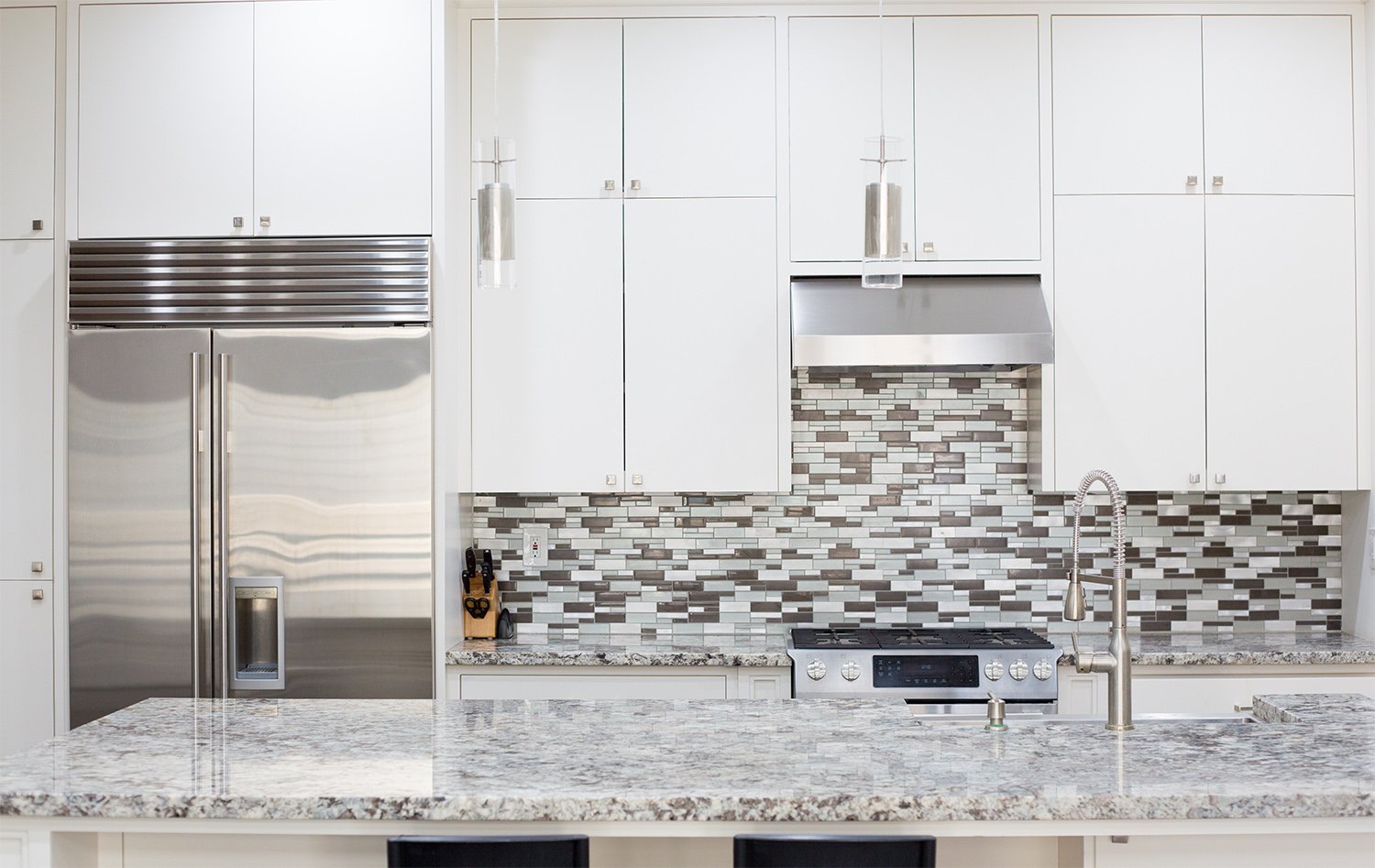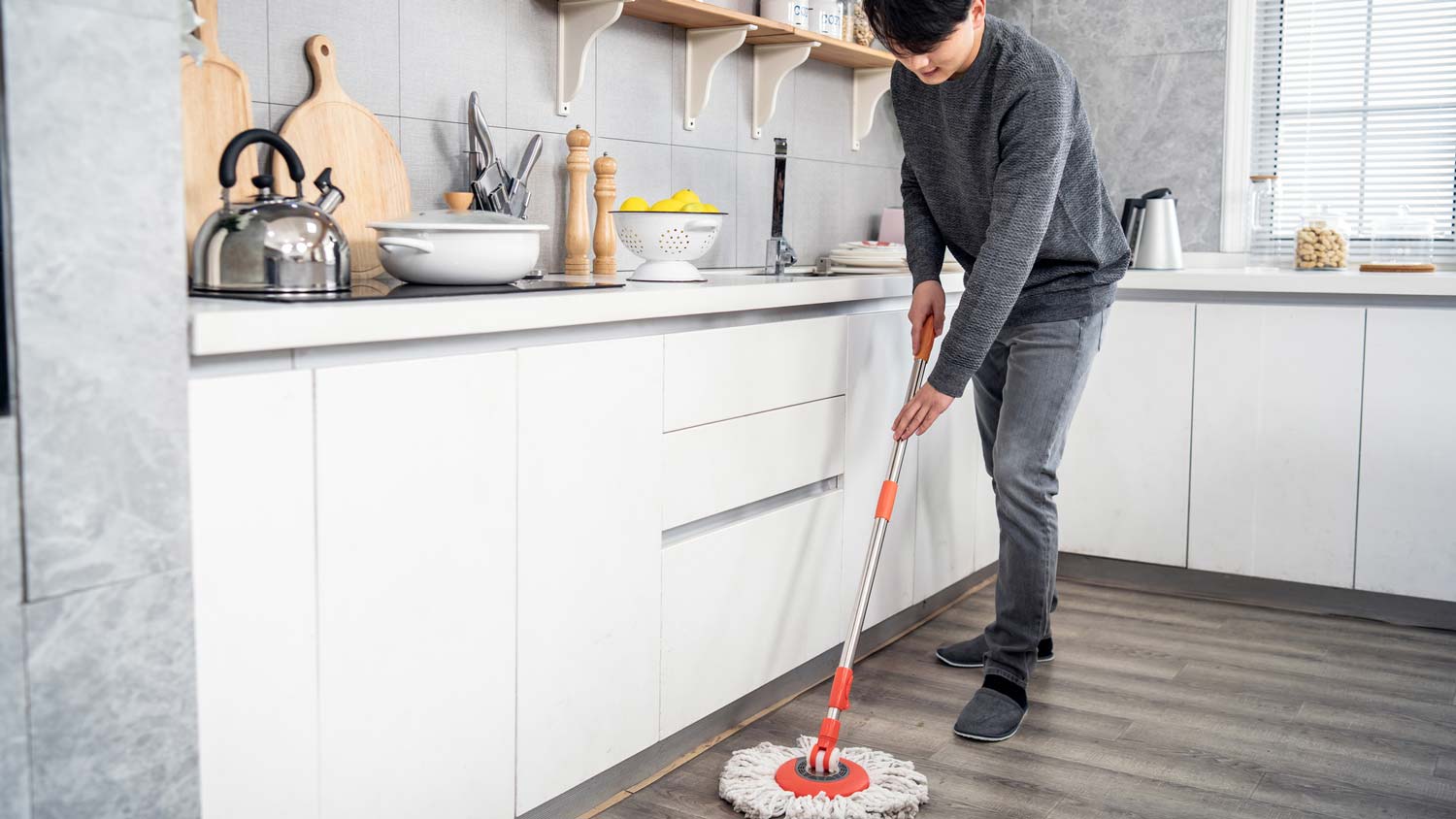
Clean walls are an important part of a well-kept house. Use this wall cleaning cost guide to see what it would cost to hire a professional to get the job done.
Cleaning your granite countertops just got a lot simpler


If you prize your counters–installation can cost between $2,000 and $4,000–you’ll want to learn how to clean granite countertops to ensure they stay as nice as they were when you first installed them. Fortunately, the proces is straightforward and you can do it with household ingredients you likely have on hand. This guide will tell you the best way to clean them and when to hire a pro.
Before you can get your granite countertops sparkling clean, you need to make a solution to get the job done. Use a medium-sized bowl to combine one teaspoon of mild dishwashing soap with two cups of warm water.
The best way to clean granite countertops is to make sure it’s thorough. Take all of the appliances and decor from the counters and place it aside. Then, use a microfiber cloth to clean crumbs, dust, and stuck on food. You can crouch down to eye level and check that every crumb is accounted for (which might be necessary depending on your granite countertop’s color).

Put your solution on the microfiber cloth, which should be damp, not soaking wet– too much water can damage granite. Place your cloth on the countertop and move it in small circular motions. You’ll continue this motion until your counters are clean.
Once you’ve finished cleaning the granite countertops, wipe them down with another clean, damp cloth. Then wipe it down with a dry cloth, allowing it to air dry completely.
Use a spray bottle to make a disinfectant solution for your granite: Combine equal parts of isopropyl alcohol and water. Apply the spray and let it sit for five minutes. Use a clean microfiber cloth to dry it in a sweeping motion, moving the cloth back and forth.

If your countertop has stains, you’ll likely need a baking soda paste. For oil-based stains, combine baking soda and water until it makes a thick paste. For water-based stains, mix baking soda with hydrogen peroxide to form a paste.
For oil-based stains, apply the paste to it, then cover it with plastic wrap. Let the paste completely dry, which can take an entire day. For water-based stains, spread a thick layer of the paste on top of the stain. Poke some holes in plastic wrap, then place the plastic wrap over the paste-covered stain. Let the paste dry overnight, or for a couple of days.

For both oil-based and water-based stains, scrape off the fully-dried stains using a dull plastic scraper. Then, wipe away the paste remains with a clean, damp cloth. Finish by wiping the countertop with a dry cloth.
Now that you know how to clean your granite countertops, performing daily maintenance is completely manageable. However, if you don’t know what caused the stain, you can’t remove it, or it’s set deep into the surface then assistance from a house cleaner near you may be in order. (You’ll know the sealant has degraded if you sprinkle a few drops of water on the countertop, and they disappear within five minutes.) Pros can deep clean the granite and reseal it afterward. Plus, they can help you tackle other parts of your kitchen cleaning checklist while there. On average, house cleaning costs $170.
From average costs to expert advice, get all the answers you need to get your job done.

Clean walls are an important part of a well-kept house. Use this wall cleaning cost guide to see what it would cost to hire a professional to get the job done.

Don’t let a little candle or incense soot stain your walls or ceiling’s finish. Here’s how to clean soot off walls.

When you cook onions, the smell can linger in your home for days afterward. Here’s a guide you can use to get rid of the onion smell in your home.

Construction leaves dust and debris in its wake. If you hire a pro to handle it, here are the post-construction cleanup questions you should be ready to answer.

Keep on top of the mess in one of the busiest rooms in your home with our daily, weekly, monthly, and seasonal living room cleaning checklists.

Not sure the benefits of a housekeeper vs a house cleaner? Learn which pro you should hire to help keep your home clean.